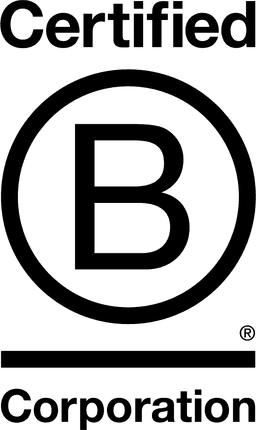

Benevity

Alberta, Canada
May 2011
Computer programming services
Service with Minor Environmental Footprint
Australia,
Canada,
Spain,
Switzerland,
United Kingdom,
United States
Some of the world’s most iconic brands rely on Spark, Benevity’s award-winning SaaS solution, to power their goodness programs. They use Spark to attract, retain and engage today’s workers by connecting people personally to causes that matter to them. With more than 2 million users around the world, Benevity will process donations benefitting more than 100,000 global charities this year. As a certified B Corporation, Benevity joins a new breed of for-profit companies with a social mission who are setting the standard for doing well by doing good. Benevity hopes to use their technology through multiple integrations to make giving to the charity of one’s choice as convenient and prevalent as leaving a tip at a restaurant. Benevity envisions a reshaping of the notion and execution of personal and corporate philanthropy that sees it embedded into a variety of everyday consumptive and commercial activities. In such a landscape, people from all demographics – regardless of their means – can give money, time, goods, etc. to the social causes of their choice, while corporations better utilize their resources and influence to do the same in a virtuous circle.
Overall B Impact Score
Governance 20.7
Governance evaluates a company's overall mission, engagement around its social/environmental impact, ethics, and transparency. This section also evaluates the ability of a company to protect their mission and formally consider stakeholders in decision making through their corporate structure (e.g. benefit corporation) or corporate governing documents.
What is this? A company with an Impact Business Model is intentionally designed to create a specific positive outcome for one of its stakeholders - such as workers, community, environment, or customers.
Workers 33.2
Workers evaluates a company’s contributions to its employees’ financial security, health & safety, wellness, career development, and engagement & satisfaction. In addition, this section recognizes business models designed to benefit workers, such as companies that are at least 40% owned by non-executive employees and those that have workforce development programs to support individuals with barriers to employment.
Community 23.3
Community evaluates a company’s engagement with and impact on the communities in which it operates, hires from, and sources from. Topics include diversity, equity & inclusion, economic impact, civic engagement, charitable giving, and supply chain management. In addition, this section recognizes business models that are designed to address specific community-oriented problems, such as poverty alleviation through fair trade sourcing or distribution via microenterprises, producer cooperative models, locally focused economic development, and formal charitable giving commitments.
Environment 5.5
Environment evaluates a company’s overall environmental management practices as well as its impact on the air, climate, water, land, and biodiversity. This includes the direct impact of a company’s operations and, when applicable its supply chain and distribution channels. This section also recognizes companies with environmentally innovative production processes and those that sell products or services that have a positive environmental impact. Some examples might include products and services that create renewable energy, reduce consumption or waste, conserve land or wildlife, provide less toxic alternatives to the market, or educate people about environmental problems.
Customers 34.6
Customers evaluates a company’s stewardship of its customers through the quality of its products and services, ethical marketing, data privacy and security, and feedback channels. In addition, this section recognizes products or services that are designed to address a particular social problem for or through its customers, such as health or educational products, arts & media products, serving underserved customers/clients, and services that improve the social impact of other businesses or organizations.
What is this? A company with an Impact Business Model is intentionally designed to create a specific positive outcome for one of its stakeholders - such as workers, community, environment, or customers.